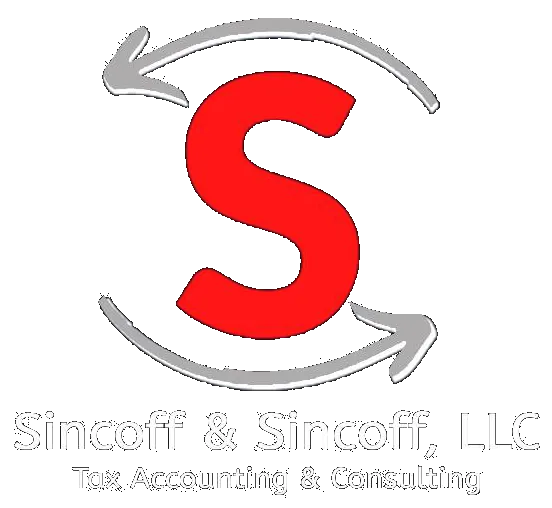Tax seizures are a critical issue that can have dire consequences for both individuals and businesses. In New Jersey, similar to the other states, the IRS and state tax authorities possess the authority to confiscate your assets if you do not fulfill your tax obligations. This can involve taking control of your bank accounts, salary, personal items, and even your home or business. Luckily, with the expertise of an experienced accounting firm like Sincoff & Sincoff, there are strategies to avert tax seizures and efficiently navigate the intricate tax system.
This all-encompassing guide will explain the nature of tax seizures, how they transpire, and how you can avoid them with professional help. We’ll also outline the measures Sincoff & Sincoff can take to safeguard your possessions, ensure adherence to tax laws, and find solutions for tax-related challenges.
What Constitutes a Tax Seizure?
A tax seizure happens when the IRS or state tax agencies confiscate your assets to repay overdue tax liabilities. This usually occurs as a last resort when other methods, like sending notices, placing liens, and garnishing wages, fail. However, seizures are not just for drastic situations—they can also occur if you fail to meet tax obligations and don’t respond to communications from tax authorities.

Protect your property with experienced CPA’s
Tax seizures may involve:
- Bank Accounts: The IRS can freeze your accounts and withdraw funds to settle the tax debt.
- Wages: Part of your salary can be garnished to repay taxes.
- Personal Property: Assets such as vehicles, boats, and valuables, including jewelry, can be seized and sold to cover the debt.
- Real Estate: Your home or business premises can be taken and auctioned to pay taxes owed.
The impact of a tax seizure can be devastating, particularly if it means losing your home, business, or most of your income. Therefore, it’s crucial to act before your tax situation escalates to this point.
How Do Tax Seizures Take Place?
The IRS and New Jersey tax authorities adhere to a defined process when collecting outstanding taxes, eventually leading to a seizure. By understanding this process, you can take preventive measures early.
- Initial Tax Due Notice: You’ll receive a notification of taxes owed, based on an unresolved filing or an unfiled return.
- Payment Demand: Ignoring the initial notice results in a formal demand for payment. It’s more urgent and warns of further actions if debts remain unsettled.
- Tax Lien: Continued inaction might lead to a tax lien on your property, which complicates selling or refinancing until the debt is cleared.
- Levy or Seizure: Should the lien fail to prompt a response, the IRS or state authorities may begin to seize assets, including bank accounts, wages, or property.
At this stage, matters become severe, with a potential sale of assets to clear taxes. Avoiding this requires timely intervention and a clear grasp of your tax situation.
Strategies to Prevent Tax Seizures
Preventing tax seizures begins with taking proactive measures to deal with tax debt promptly. Here’s how Sincoff & Sincoff can prevent seizures:
- Keep Up with Tax Payments: Aligning with tax duties, including timely returns and full payments by deadlines, is crucial. If difficulties arise, contact the IRS or state tax office for payment plans or deadline extensions. Sincoff & Sincoff ensure you meet deadlines to prevent missed payments that could lead to seizures.
- Establish an Installment Agreement: If a large tax debt is unaffordable as a lump sum, Sincoff & Sincoff can facilitate an installment plan with the IRS or state, allowing gradual debt settlement to prevent seizures.
- Negotiate an Offer in Compromise: An Offer in Compromise (OIC) allows settling the tax debt for less than owed if full payment causes financial strain. Sincoff & Sincoff will assess your eligibility for an OIC and guide you through the process to avert seizures.
- Consider Bankruptcy (Last Option): In extreme cases, bankruptcy could halt tax seizures, as some tax liabilities may be relieved. This complex legal process has long-term impacts and requires careful consideration with Sincoff & Sincoff’s guidance on its suitability for you.
- Innocent Spouse Relief: If married with a joint tax return, you might bear responsibility for your partner’s tax debt. If the debt stems from their errors without your knowledge, you may qualify for Innocent Spouse Relief, which Sincoff & Sincoff can help you pursue.
How Sincoff & Sincoff Can Assist
Dealing with tax issues is overwhelming, but you don’t have to tackle it alone. Sincoff & Sincoff can help you prevent tax seizures and manage tax obligations effectively. Here’s what we offer:
- Tailored Tax Guidance: We deliver personalized advice based on your financial situation. Whether grappling with overdue taxes or planning future payments, our experts offer strategies to avoid seizures.
- Tax Issue Resolution: Already burdened with back taxes or collection efforts? We specialize in settling these with the IRS or state tax authorities, targeting minimized penalties, reduced interest, and favorable deals like payment plans or compromises.
- Audit Support: Undergoing a tax return audit or facing an investigation by the IRS or state? Sincoff & Sincoff represent you in the audit process, shielding your rights and providing necessary documents.
- Comprehensive Tax Planning: The key to avoiding seizures is prevention. We offer extensive tax planning to ensure you comply with laws, dodge usual pitfalls, and minimize the risk of future tax issues.
Disclaimer: Always seek updated advice from Sincoff & Sincoff regarding tax seizures, as tax laws evolve continually. We provide currently relevant and tailored counsel.
By working with Sincoff & Sincoff, rest assured your assets are secure, and your tax issues are expertly managed. Contact us today to learn how we can help prevent tax seizures and confidently oversee your financial future.

